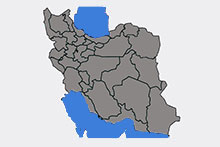South Korea, like Japan, without having the raw materials and energy resources and even a proper market has turned to this industry for its development.
Importance of Steel in Development of Societies
Steelmaking is considered a parent and basic industry which could ensure sustainable and widespread employment. This industry, in addition to direct employment generates indirect employment of up to five times of the direct employment.
The industry, in addition to industrialization of Western countries and the former East bloc, has played a pivotal role in the development of East Asian countries as well. In the meantime, countries devoid of natural resources and the required raw materials for creation of Steel industry have taken measures to launch the industry in their country. For example, Japan after the World War II, based its development on iron and Steel and at present, chemical and heavy industries rely on Steel industry.
South Korea, like Japan, without having the raw materials and energy resources and even a proper market has turned to this industry for its development. The annual production of about 800 million tons of Steel by China and economic growth of that country even under the critical global economic conditions, are examples of the pivotal role of the Steel industry in industrial development.
With regard to these evidences, industrial policies of the developed countries, particularly the role of industrial policies of Japan, East Asia and China, are considered new lessons for development. Among the most important points of interest in the development experience of countries in East Asia is that in these countries both the role of the development-oriented government and developmental organizations and the role of free economy and the private sector is significant.
click here to see full version article
 A Aاندازه فونت
A Aاندازه فونت
 تراز متن
تراز متن
 فاصله متن
فاصله متن
 توقف انیمیشن
توقف انیمیشن
 نارساخوانی
نارساخوانی
 مکان نما
مکان نما
 راهنمای خواندن
راهنمای خواندن
 بزرگنمایی
بزرگنمایی
 فاصله خطوط
فاصله خطوط
 عدم نمایش تصاویر
عدم نمایش تصاویر



 تضاد رنگ ها
تضاد رنگ ها
 سیاه و سفید
سیاه و سفید
 نمایش لینک ها
نمایش لینک ها
 خواندن متون
خواندن متون برگشت
برگشت بازنشانی
بازنشانی









